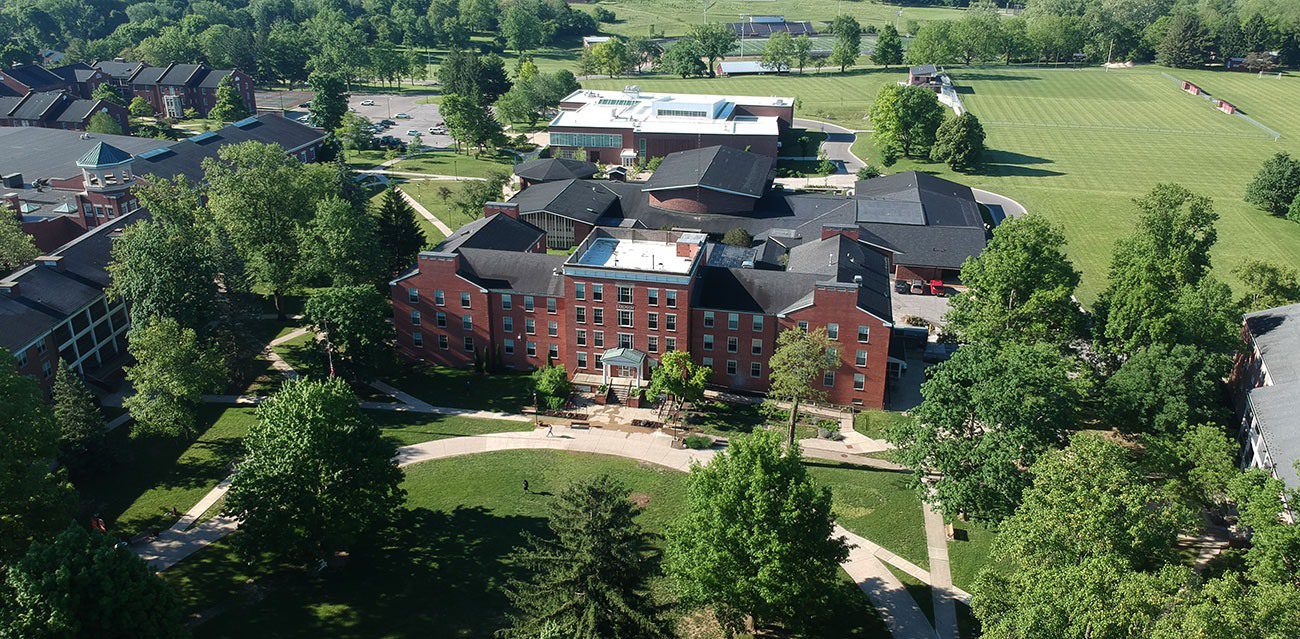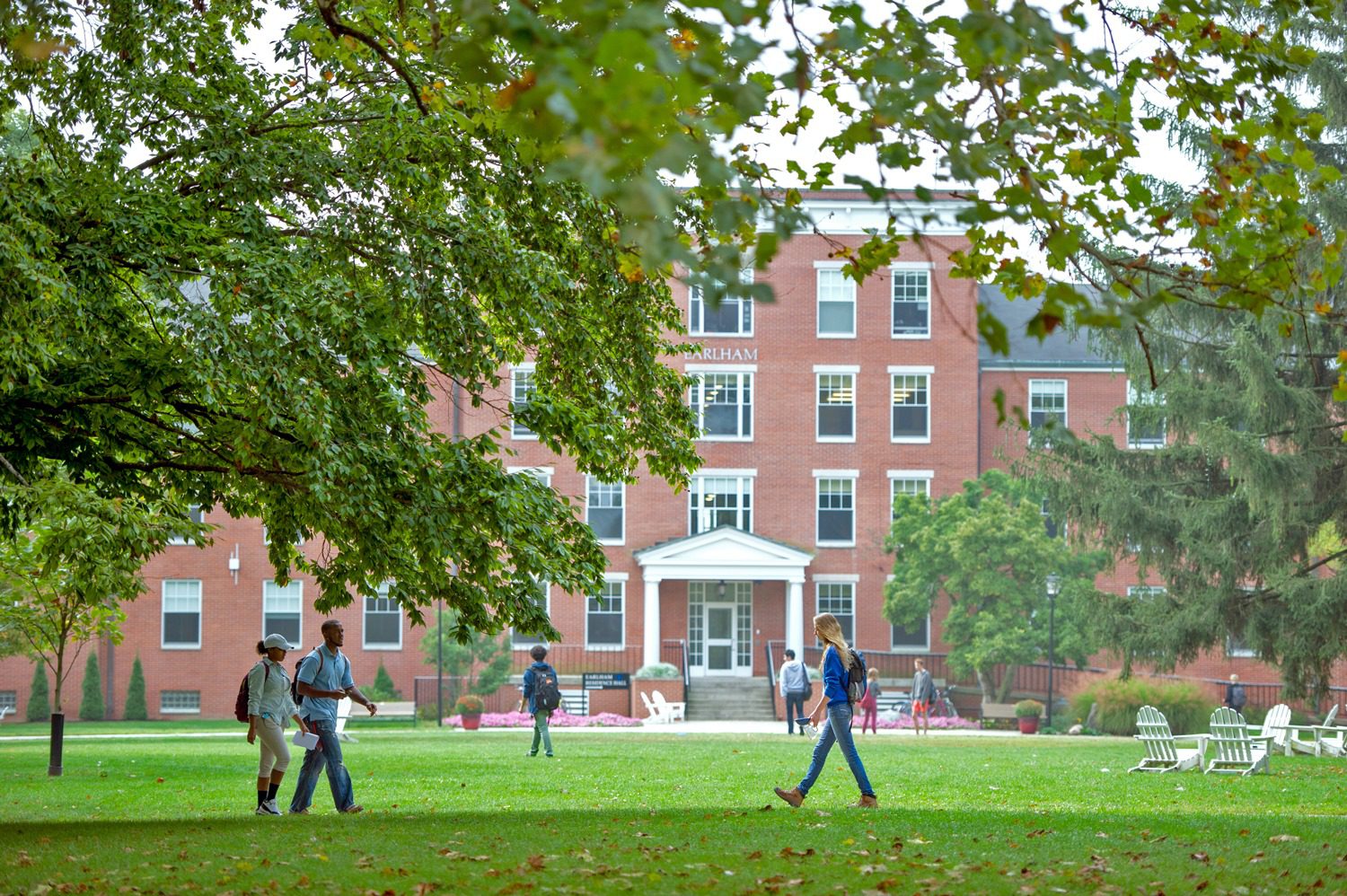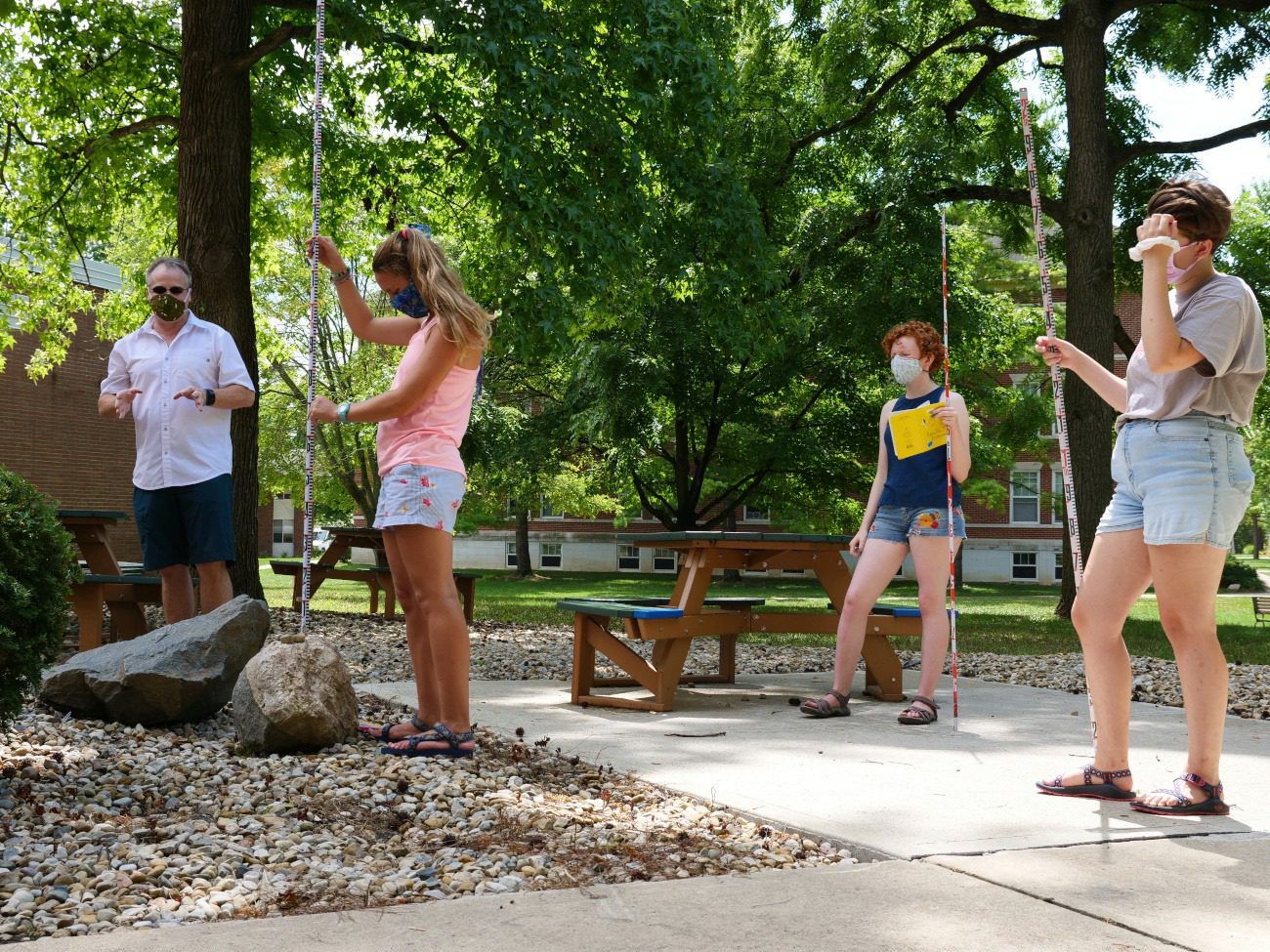Students who want to make a better, more sustainable future for human society can find unique opportunities to do so at Earlham College, an independent, liberal arts school in Richmond, Indiana.
Earlham is affiliated with the Religious Society of Friends, or Quaker, movement. Quakers are known for their advocacy for equality and fair treatment of all peoples. As an institution shaped by Quaker perspectives, Earlham values truth-seeking, rigorous intellectual integrity, an open and cooperative learning environment, the merit of lifelong learning habits, and the recognition of the “teacher within.”
According to Earlham’s website, “These values are rooted in a commitment to caring for the world we inhabit, improving human society, promoting global education, seeking peaceful and just transformation of conflicts, affirming the equality of all persons, and maintaining high ethical standards of personal conduct.”
At Earlham, Environmentalism Is Everyone’s Business
Earlham casts a vision for all community members to collaborate for sustainability. A Comprehensive Sustainability Plan was drafted in 2011-2012 and updated in 2016 by environmental studies seniors as their capstone project. According to the document, “Sustainability at Earlham is not fixed and static but will be an ever-changing orientation to the question of ‘how we should best live’ both on-campus and in our wider social and ecological communities of interest and influence.“
This work is more than just a checklist of to-dos. The Earlham Sustainability Progress Committee meets monthly to track and assess the campus’ implementation of the Sustainability Plan, and many campus sustainability initiatives are coordinated by members of the Student Sustainability Corps.
The school is home to the Center for Environmental Leadership, which seeks to engage students in finding solutions to problems within interconnected social and environmental systems. Earlham is also a member of The Indiana Green Campus Network, which includes 28 participating campuses.

As a result of their diligent work, Earlham received the Association for the Advancement of Sustainability in Higher Education’s STARS Silver designation in 2016.
Some of the initiatives that have made a lasting difference on Earlham’s campus include a single-stream recycling plan across campus, a composting initiative with on-campus food service operations and college-owned houses, a Green Office program, a bike share program, and the implementation of safer cleaning products through Aramark’s college cleaning system that uses deionized water to clean surfaces without chemicals.
Earlham has also invested in LEED-certified new builds and major renovations projects. They currently have two LEED Gold-Rated buildings (new builds), one LEED Silver-Rated building, and one LEED certified building (both renovations).
Two initiatives at Earlham work together to reduce the amount of waste that ends up in landfills. The Earlham Free Store is a place for usable items to be exchanged within the Earlham community. Through the Move Out Project at the end of each semester, the Student Sustainability Corps coordinates a collection of items that might otherwise be thrown away and arranges donations to a local charity or to the Free Store for a second life.
Miller Farm As Outdoor Classroom
Several classes at Earlham take advantage of the college’s Miller Farm, a sustainable agriculture, cross-cultural community, to put dirt into their curriculum, so to speak. The farm offers students and community members an incredible opportunity to experiment in a living lab.
Students grow and prepare food, share resources with the broader community, introduce nature to children in the area, and experiment with sustainability principles they’re learning in the classroom. Recent projects include an outdoor kitchen structure, permaculture beds, and an unheated greenhouse. Each week, Miller Farm hosts Farm Days, a community work day, which is open to Earlham and Richmond community members.

Sustainability Courses, Majors, and Minors at Earlham
First-year students can sign up for the pre-orientation summer wilderness program, which includes an 11-day backpacking experience in the Uinta Mountains of Utah or canoeing in the Wabakimi Provincial Park. The school also offers two introductory sustainability courses, both of which take a systems thinking approach to the study of environmental problems.
One of the standout features associated with choosing Earlham for an undergraduate education is the variety of unique minors available to students interested in Creation care.
Two particular minors bridge the arts and sciences in unique ways. The art, nature and conservation applied minor brings students to the intersection of creativity, nature, and Creation care to explore how artistic expression can support nature and habitat conservation, biodiversity, sustainability, and environmental education. This minor requires students to spend a significant amount of time immersed in two co-curricular activities that engage with the natural world. The anthrozoology applied minor draws upon courses from the humanities, natural sciences, and social sciences to study human-animal interactions. To complete this minor, students choose from such courses as Japanimals; Human-Animal Interactions; Contemporary Literature: Human, Animal, Machine; and Conservation Biology, among others.
The sustainability and management applied minor gives students an opportunity to develop the leadership skills they need to integrate the principles of sustainability and the management of organizations for a stronger future society. For students who are pursuing a career in food and agricultural systems, the sustainable agriculture applied minor casts the lens of sustainability on the full range of the food cycle, from soil to plants to production processes and the global economy.
Students who are interested in leading in the outdoor education industry can choose the outdoor education applied minor, which emphasizes educational and environmental theory, interpersonal and leadership skills, and an introduction to technical skills such as backpacking, canoeing, and rock climbing.
For the student who wants to pursue a career in environmental science or biology, Earlham offers two majors: the environmental sustainability major and biology.
The environmental sustainability program at Earlham offers several different tracks to customize your course of study: environmental education track, climate change track, natural resource conservation track, environmental culture and justice track. During the spring semester of senior year, environmental sustainability majors engage in a collaborative, integrated research project, often with a community partner.
Earlham’s biology program encompasses all facets of biology, from cell to ecosystems, from neuroscience to environmental science and health. This hands-on program offers students access to faculty members across the divisions of science: environmental science, neuroscience, biochemistry, health science, ecology, evolution, and cell and molecular biology. Students can major or minor in biology at Earlham.
Learning and Living in Sustainability
Students have the opportunity to live with other like-minded students in several suitably-themed communities. First-year students can choose to live on the Sustainability Floor. Second- through fourth-year students can live at 417 College Avenue (environmental), Foster House (outdoor education), Fry House (sustainable agriculture) and the Co-op Floor.
Staying Connected with Sustainable Initiatives at Earlham
Sustainability-minded Earlham students have many opportunities to connect and learn from one another. A Net Impact chapter meets at Earlham. The Bike Co-op strives to create a bike-friendly community at Earlham and around greater Richmond. The Outdoors Club welcomes outdoor enthusiasts to experience nature first-hand through trips and expeditions. Through Vegg(IE) Intentional Eating club, students discuss harmful diet trends to support one another in finding healthy eating habits.
If pursuing sustainability at a faith-based institution in the Midwest sounds right to you, consider exploring all that Earlham has to offer! Visit earlham.edu to learn more.





 Copyright
2024
Root and Vine
Copyright
2024
Root and Vine